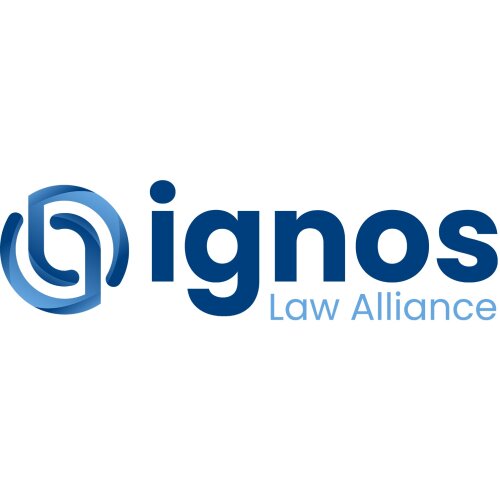Best Creditor Lawyers in Indonesia
Share your needs with us, get contacted by law firms.
Free. Takes 2 min.
Or refine your search by selecting a city:
List of the best lawyers in Indonesia
About Creditor Law in Indonesia
Creditor law in Indonesia encompasses regulations and legal frameworks that govern the rights and obligations of creditors in the country. This field of law deals with the enforcement of debt obligations, bankruptcy procedures, and the protection of creditors' rights. Indonesian creditor law is influenced by international practices but has its own unique characteristics shaped by the country's legal system. It covers interactions between debtors and creditors, categorization of debts, and methods available for debt recovery.
Why You May Need a Lawyer
There are several situations where you might require legal assistance in creditor matters in Indonesia:
1. **Debt Recovery:** If you are facing difficulties in recovering debts from individuals or businesses, a lawyer can help navigate legal avenues to enforce your claims.
2. **Bankruptcy Proceedings:** During bankruptcy, understanding the legal rights as a creditor and ensuring your claims are acknowledged requires legal expertise.
3. **Negotiating Settlements:** Legal assistance can facilitate negotiations and help reach amicable settlements to resolve outstanding debts.
4. **Contractual Disputes:** If a debtor breaches contractual terms, a lawyer can help pursue legal remedies.
5. **Legal Compliance:** Ensuring that your credit and collection practices comply with Indonesian regulations is crucial to avoid legal repercussions.
Local Laws Overview
Key aspects of local laws relevant to creditors in Indonesia include:
1. **Bankruptcy Law:** Governed by Law No. 37 of 2004 on Bankruptcy and Suspension of Debt Payment Obligations, this law outlines the procedures for bankruptcy filings and debt restructuring.
2. **Civil Law Code:** The Indonesian Civil Code outlines general provisions for contractual obligations, including those related to credit and debt.
3. **Fiducia Law:** Law No. 42 of 1999 on Fiducia provides legal frameworks for using fiduciary security (collateral) in credit agreements.
4. **Consumer Protection Law:** Although not directly focused on creditors, this law affects how credit can be extended to consumers, ensuring transparency and fairness.
Frequently Asked Questions
1. What is the legal process for debt recovery in Indonesia?
The process typically involves sending demand letters, negotiating settlements, and if necessary, pursuing court proceedings or bankruptcy filings.
2. How can a creditor file for bankruptcy against a debtor?
A creditor can file a petition in court if the debtor cannot meet their payment obligations, and the debt is undisputed with supporting evidence.
3. What rights do creditors have in bankruptcy proceedings?
Creditors have the right to be notified, attend creditor meetings, and vote on settlement plans or composition proposals.
4. Are foreign creditors afforded the same rights as domestic creditors?
Generally, foreign creditors enjoy similar rights but may face additional procedural requirements or limitations under Indonesian law.
5. Can a creditor seize assets without a court order?
Creditors must obtain a court order unless a fiduciary agreement or other legal motility allows asset seizure without judicial intervention.
6. How do fiduciary arrangements benefit creditors?
Fiduciary arrangements provide security for creditors by allowing asset ownership to act as collateral without transferring possession to the creditor.
7. What role does a lawyer play in debt restructuring?
Lawyers help negotiate terms, draft restructuring agreements, and ensure compliance with legal formalities during the restructuring process.
8. Are there protection laws for creditors against fraudulent debtors?
Certain legal provisions penalize fraudulent activities and provide creditors with remedies against deceitful practices by debtors.
9. How is interest on outstanding debts regulated?
Interest rates are subject to contractual agreements but must comply with Indonesian usury laws and other financial regulations.
10. Is arbitration a feasible option for creditor disputes?
Yes, arbitration is an alternative dispute resolution method often used for quicker and confidential settlement of creditor disputes.
Additional Resources
Consider the following resources for further assistance:
- **Indonesian Financial Services Authority (OJK):** Offers guidelines on financial services regulations.
- **Indonesian Chamber of Commerce (KADIN):** Provides networking opportunities and resources related to business and creditors.
- **Legal Aid Institutes (LBH):** These organizations can offer pro bono legal services or assistance.
Next Steps
If you need legal assistance with creditor matters, consider these steps:
1. **Consult with a Legal Expert:** Seek guidance from a lawyer specializing in creditor law to understand your rights and options.
2. **Gather Evidence:** Collect all relevant documentation related to the debt or dispute at hand.
3. **Determine Your Objectives:** Define your goals, whether pursuing legal action, negotiating a settlement, or restructuring debt.
4. **Engage in Legal Proceedings:** If necessary, proceed with legal actions based on professional advice to protect your interests.
By taking these proactive steps and consulting legal experts, you can effectively manage creditor-related issues in Indonesia.
Lawzana helps you find the best lawyers and law firms in Indonesia through a curated and pre-screened list of qualified legal professionals. Our platform offers rankings and detailed profiles of attorneys and law firms, allowing you to compare based on practice areas, including Creditor, experience, and client feedback.
Each profile includes a description of the firm's areas of practice, client reviews, team members and partners, year of establishment, spoken languages, office locations, contact information, social media presence, and any published articles or resources. Most firms on our platform speak English and are experienced in both local and international legal matters.
Get a quote from top-rated law firms in Indonesia — quickly, securely, and without unnecessary hassle.
Disclaimer:
The information provided on this page is for general informational purposes only and does not constitute legal advice. While we strive to ensure the accuracy and relevance of the content, legal information may change over time, and interpretations of the law can vary. You should always consult with a qualified legal professional for advice specific to your situation.
We disclaim all liability for actions taken or not taken based on the content of this page. If you believe any information is incorrect or outdated, please contact us, and we will review and update it where appropriate.
Browse creditor law firms by city in Indonesia
Refine your search by selecting a city.

















